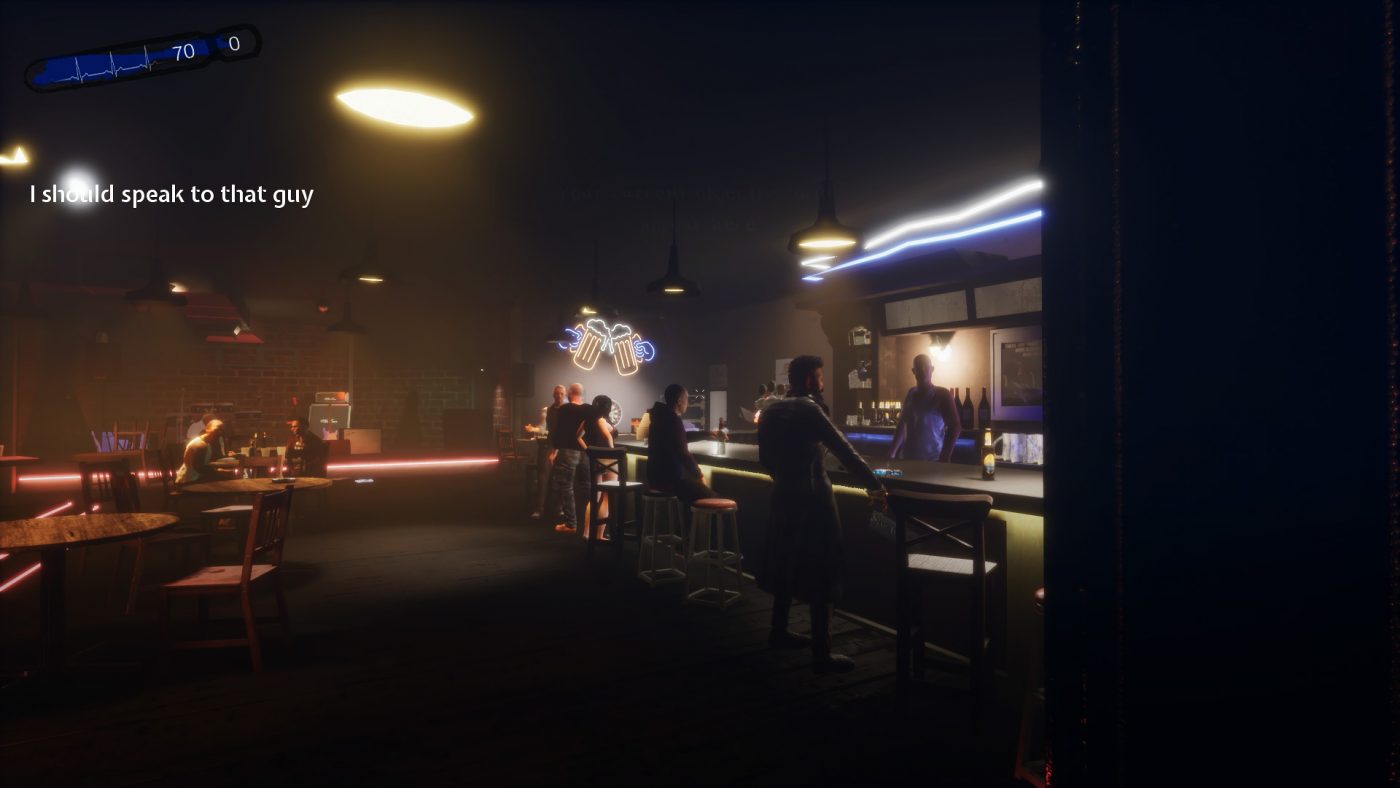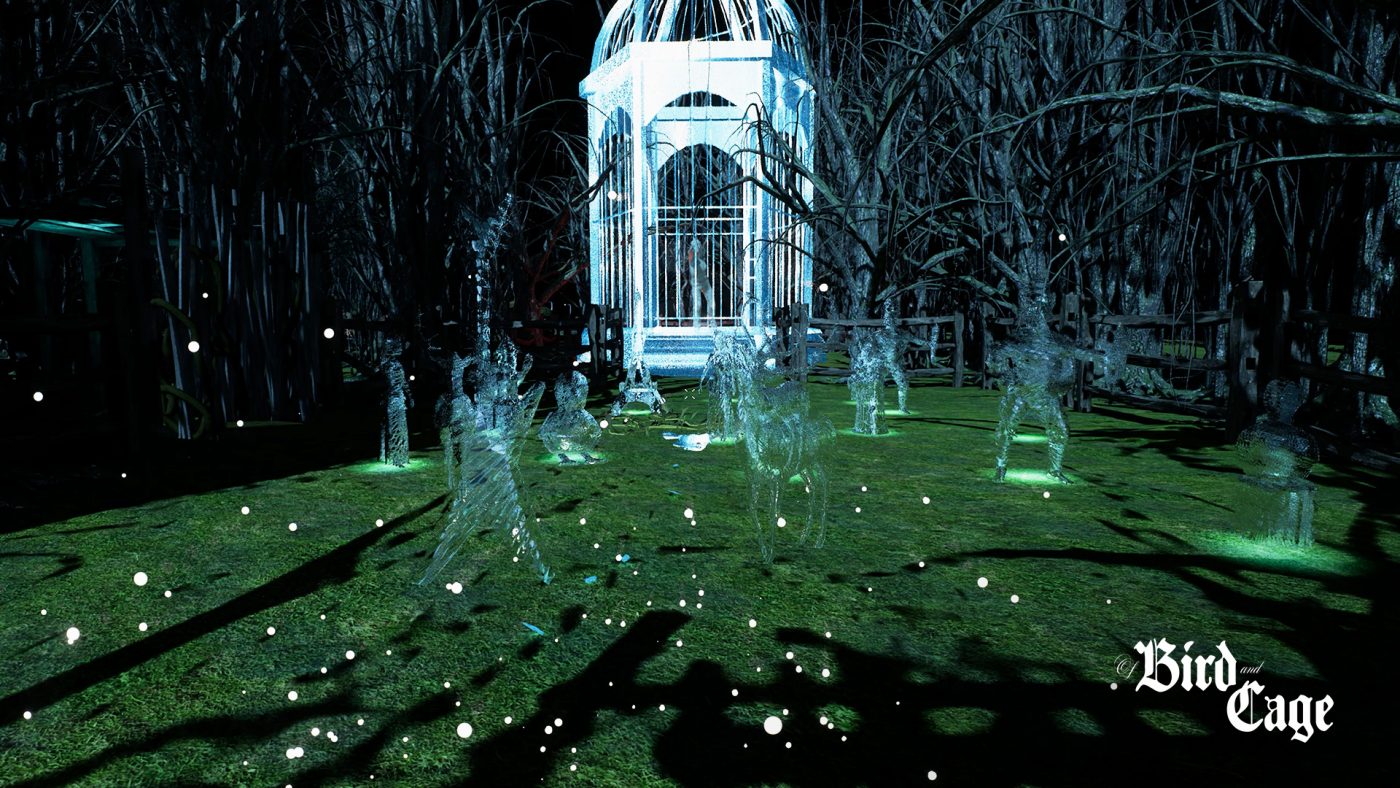My ever-dwindling gaming time is ideally used to destress, escape from reality and relax. Despite the heavy themes running through Of Bird and Cage (available on PC now), it wasn’t these that left me largely frustrated and on edge though. A host of gaming bugbears were in attendance – QTEs, poor signposting, a confusing and messy plot and inoperable controls – which cut through the oppressive tone and made this a largely unfulfilling gaming experience.
The general premise of the game was never going to be an easy sell. A reimagining of the Beauty and the Beast fairy tale, by way of an interactive metal album underpinning the narrative. The themes required a maturity, tact and sensitivity that I often felt was lacking in the delivery. Domestic abuse, addiction, sexual assault, violence and mental health all form key parts of the story and whilst the creators should be applauded for attempting to address some of these issues, I never felt this was done with enough nuance and subtlety. A game so shaped by its soundtrack relies on the strength of its music. It would be remiss of me to fail to admit to disliking metal as a musical genre. However, I was suitably impressed with the music and it definitely served to challenge my prejudice towards the genre.
You play as Gitta, a 25 year old waitress working in a dead end job, in a dead end town. Her existence was fairly well summed up by my initial introduction to the controls. The staple interact button was in attendance alongside various movement commands; the outlier was the use of the TAB button to ‘Take Drugs’. Gitta is addicted to a drug called GSBV and whilst the opening level gives you an insight into how the drug affects your gaming experience, this really is under-utilised for the rest of the game. It’s a strange design decision as the drug is constantly on your HUD, yet is rarely available or part of the gaming.

Much like Telltale’s output, you are instructed that ‘Your choices will affect events in the future.’ There are indeed choices to be made; however, these don’t carry the weight of those that Lee or Clementine make in The Walking Dead. Herein lies one of the weaknesses of the game; I really didn’t care for any of the characters. Not in the way that I did with Lee and Clementine; the writing in Of Bird and Cage is weak and as such, the weight of the topics and the protagonist’s fate were of little consequence to me.
The gameplay was a disappointment. In the game’s opening level you turn up in a divebar and have the opportunity to play darts. I’m a sucker for mini-games so looked forward to striving for that perfect 180, yet the game gives you minimal actions to do within the mini-game. I’d rather it had not been included but this is a minor quibble and is very much on me trying to realising my Eric Bristow aspirations. Of more serious concern, were the times when you have to use a gun and the reload button wouldn’t work. This wasn’t a one-off, happening in 3 different levels. In addition, for a game about really sensitive issues, I was disappointed with the amount of levels that degenerated into Gitta having to have fist fights with various male characters. These were repetitive and amounted to little more than button-mashing.

And the QTEs. Up there with escort missions in the pantheon of gaming no-nos. The only thing that makes a QTE even more frustrating is when the game fails to register your button presses. Which occurred regularly here. There’s also a lack of signposting during levels. Working things out for yourself is often an extremely rewarding gaming dynamic; when it is coupled with a timer and no direction at all it becomes far less so.
It’s far easier to be critical of a game than to be positive; objection handling is a difficult art and there is real craft in extolling a games’ virtues without seeming overly gushing. The truth is I just didn’t get on with this at all; it genuinely gave me a knot in my stomach at one point as I found the whole thing so frustrating. For a game that warns you that your actions will have repercussions, occasionally stopping you taking actions (such as reloading a gun in a pivotal scene) divests you of shaping your destiny. Of Bird and Cage attempts to address sensitive issues in a unique way, but struggles to realise the weight of its lofty ambitions.

